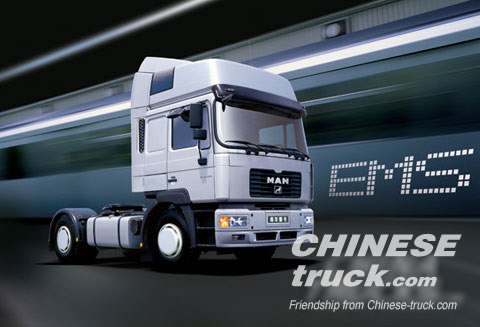The slowdown in Europe and moderate expansion in truck demand in North America will be largely offset by robust growth in Next-11 and other Rest of World markets, resulting in global medium-heavy truck sales reaching 2.8 million this year.

New research from Frost & Sullivan Strategic Outlook of the Global Medium-Heavy Commercial Truck Market in 2013, finds that platform-based truck production and advanced technology integration encompassing powertrain, safety, telematics, and cabin design areas will experience significant growth in 2013.
This year, an expected 1 in 5 heavy-duty trucks sold globally will feature platform-based lineage. The global market for low-cost trucks too is expected to continue strong growth with a CAGR of 8.6% over the 2009 to 2017 period.
“Although the economy is expected to improve, there is cautious optimism amongst commercial vehicle OEMs in the TRIAD markets of North America, Europe and Japan,” says Frost & Sullivan Industry Analyst Bharani Lakshminarasimhan. “The research revealed that many of these OEMs will not only continue to focus greater efforts on the growing markets of Brazil, Russia, India and China (BRIC), but also expand to the Next-11 and African markets, while introducing groundbreaking technologies in their home markets.”
Several Next-11 markets are likely to post nearly double-digit growth in new truck sales in 2013. Of these, Indonesia and Turkey are forecast to double in size from 2012 to 2020, while Mexico is also set for long-term growth. Additionally, within the BRIC markets, Russia will sustain the fast growth that was seen in 2012. The net resultant of these trends will be a higher demand for medium-duty trucks relative to heavy-duty trucks.
However, the global medium-heavy truck market will continue facing strong headwinds, as Western Europe experiences considerable decline in new truck sales and volatile energy prices, keeping consumers in many parts of the world from buying new equipment. Moreover, the lack of significant “critical mass” in terms of sales volumes, despite strong growth rates in many markets such as Africa, will challenge OEMs in TRIAD markets in investing heavily to create solid business cases for several Next-11 and RoW markets. With that said, Chinese and Indian OEMs will continue thriving in many of these non-BRIC developing markets.
The next frontier for commercial vehicles, though, includes an increase in advanced technologies, creating the foundation for the next generation of smarter commercial vehicles, particularly within North America, Europe and Asia-Pacific. Of these markets, OEMs in North America and Europe will put their focus on “soft technologies,” such as telematics, cabin design and safety technologies, while Asian OEMs will put a greater emphasis on creating powertrain technologies that are governmental regulation compliant and have fuel-efficiency.
“Overall advanced technologies, such as natural gas powertrain, integrated safety technologies, health, wellness and well being enablers, and connectivity technologies are expected to receive a major boost globally,” concludes Lakshminarasimhan.
